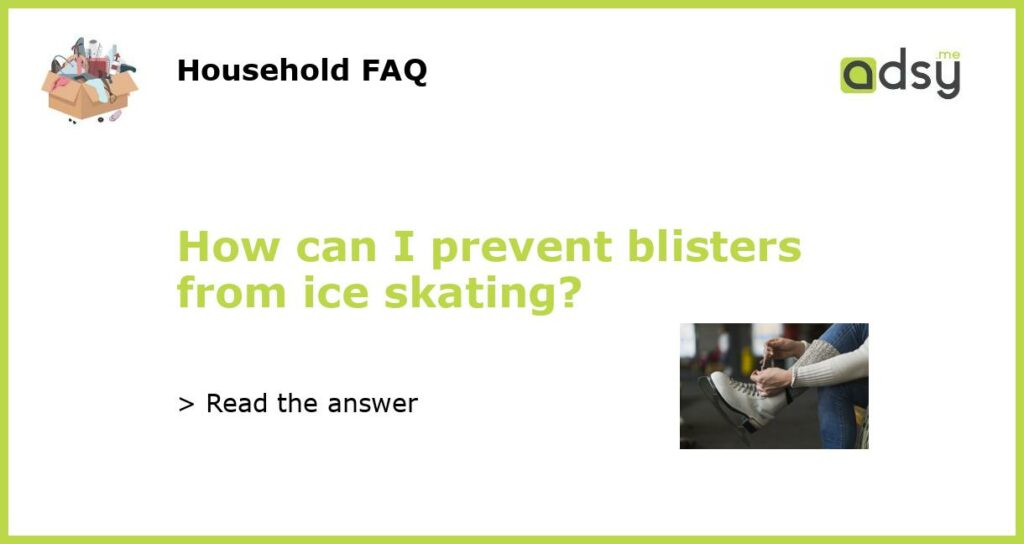Ice skating is a popular winter sport that provides a great exercise for the entire body. Although it is a fun activity, the skates can cause some discomfort, including blisters. Blisters are caused by friction and pressure between the skin and the skate. However, several preventive measures can help you avoid blisters while ice skating. This article will discuss these measures as well as some remedies to treat an already formed blister.
Wear the right fitting skates
The first step in preventing blisters while ice skating is to ensure that you wear properly fitting skates. If your skates are too tight, they will create excessive pressure on the feet, while loose-fitting skates can cause the feet to slide within the boots, leading to friction. Therefore, when buying skates, ensure you get the right size and consider investing in custom-fit skates.
Wear good quality socks
Another key step in preventing blisters is wearing good quality socks. Avoid cotton socks as they tend to absorb sweat, which can make your feet wet and increase the chances of developing blisters. Instead, wear socks made of synthetic fibers that wick away moisture and keep your feet dry.
Use blister pads or band-aids
If you are prone to developing blisters, consider using blister pads or band-aids on the high-pressure areas. You can place them anywhere that rubs against the skate, including the heels and toes, to reduce friction and prevent blisters. They act as a cushion between the skin and the skate, reducing pressure and friction.
Apply skin lubricants
Another great way to prevent blisters is by applying skin lubricants, such as petroleum jelly or talcum powder, before putting on your skates. These lubricants create a barrier between the skin and the skate, reducing friction and preventing blisters.
Take breaks
Lastly, taking breaks during skating sessions can help prevent blisters. This gives your feet the chance to rest and reduces the chances of developing blisters due to prolonged pressure.
Ice skating is a fun activity that can sometimes lead to blisters if proper preventive measures are not taken. To avoid blisters, ensure you wear properly fitting skates, good quality socks, use blister pads or band-aids, apply skin lubricants, and take breaks during skating sessions. If you do develop a blister, avoid popping it and follow proper blister care practices to avoid infections.






